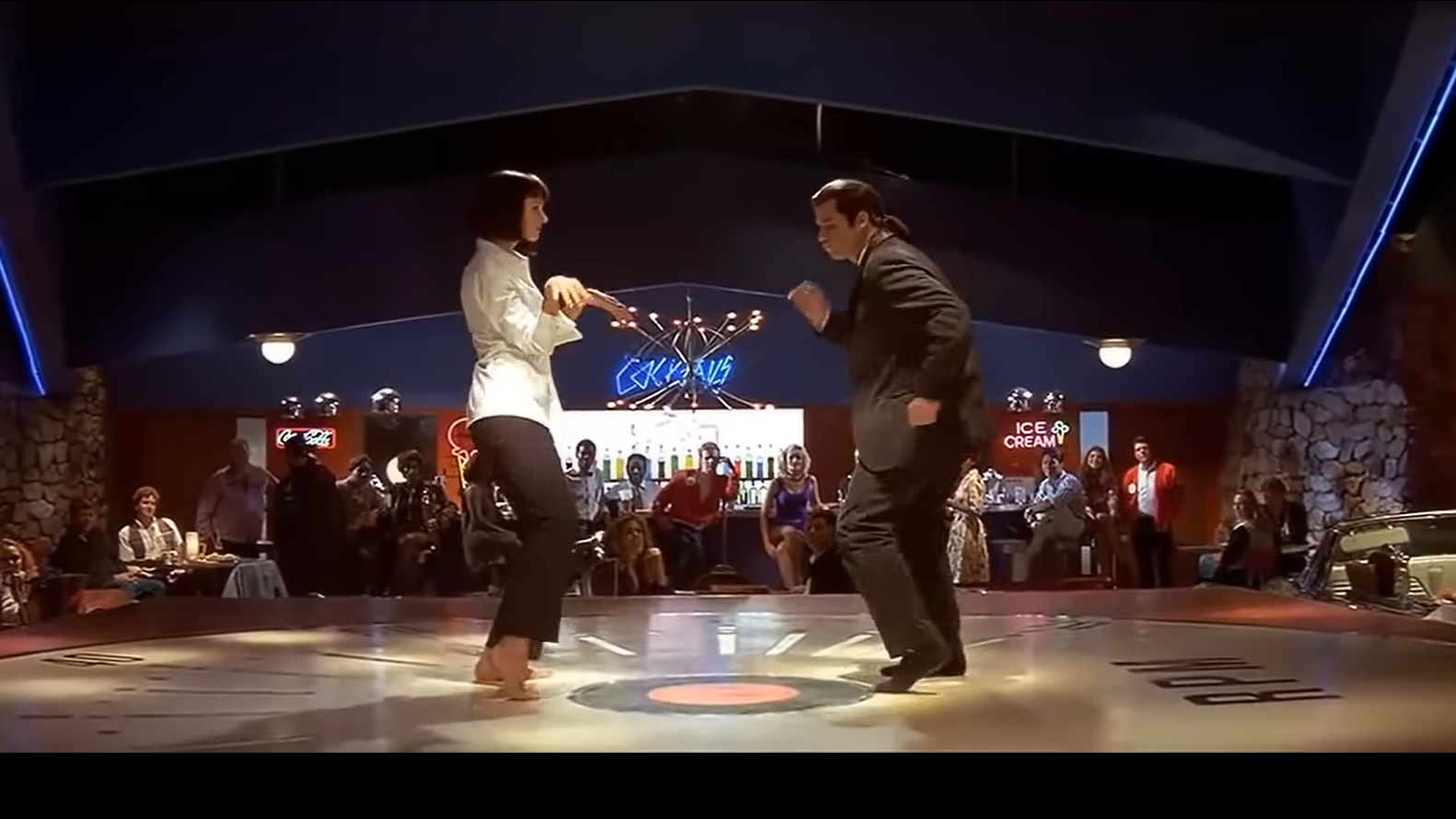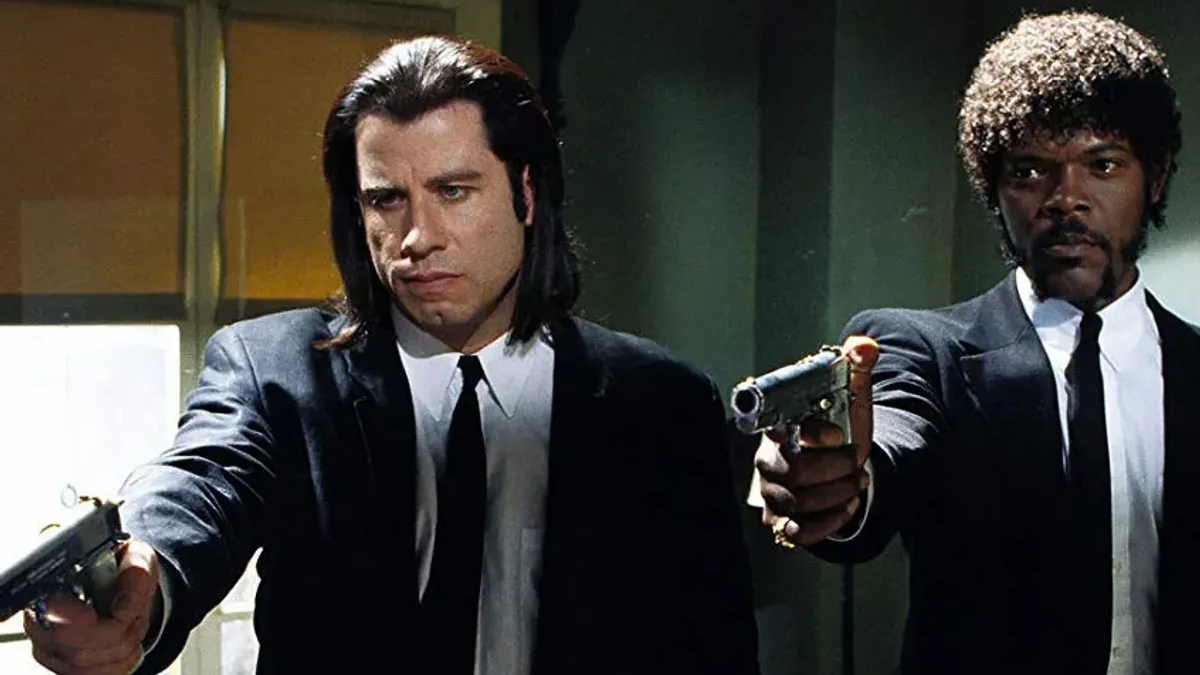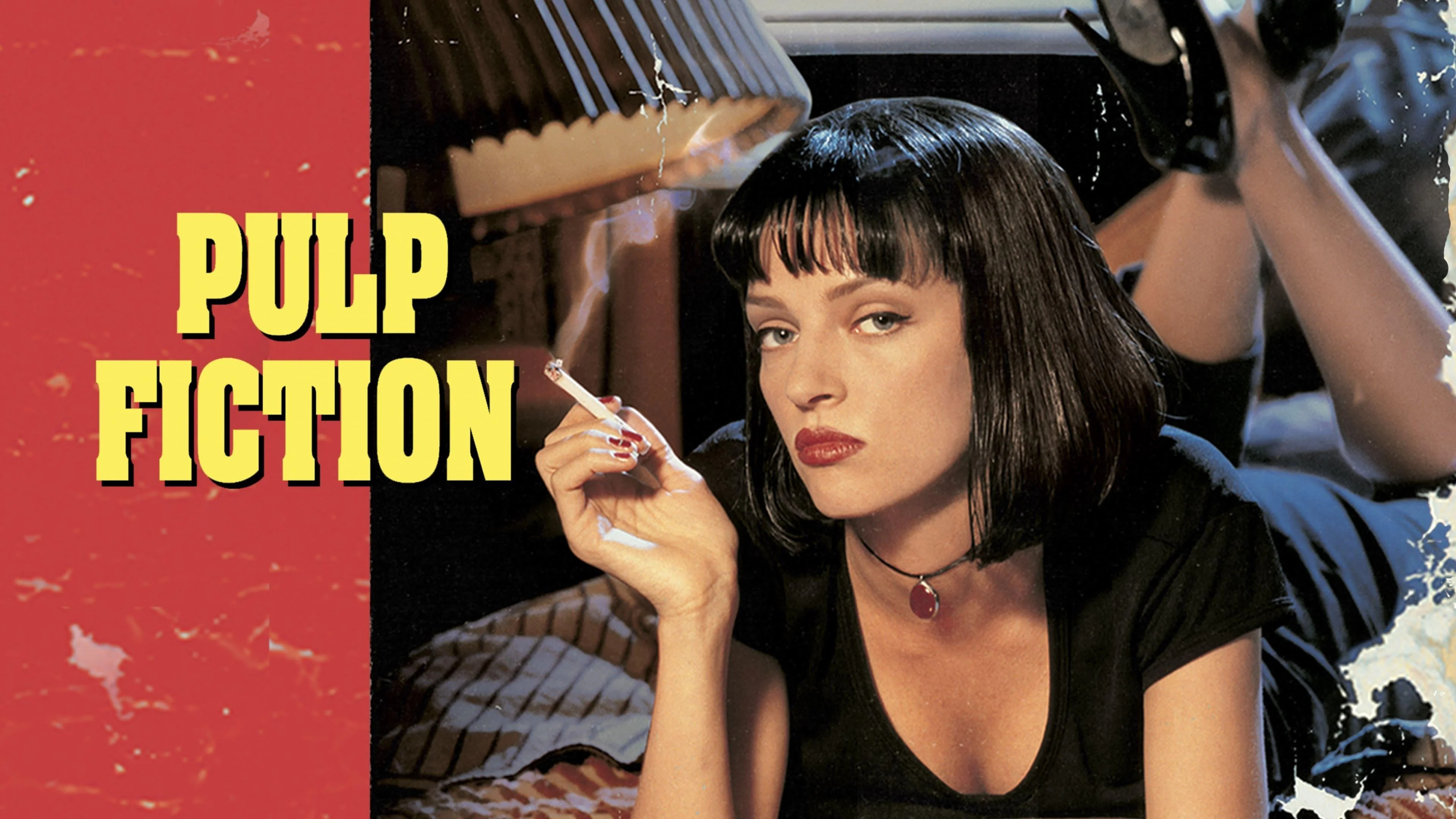
We're sorry to be the bearers of bad news, but Pulp Fiction is turning 30 this year. Officially released in October 1994 on a budget that didn't even break the $10 million barrier, Quentin Tarantino's sophomore effort remains one of the most iconic releases of all time, it's ever-reproduced poster of Uma Thurman smoking provocatively on her bed adorning the walls of teenage bedrooms, trendy bars and barber shops ever since.
If you were too young to catch the movie when it first arrived in the mid-’90s, or you're simply desperate to return to the glory days and experience Quentin's masterpiece in the full majesty it deserves, you're in luck. Pulp Fiction is returning to UK cinemas on August 23rd in glorious 4K to celebrate turning 30, and we've already got our tickets booked (metaphorically speaking, at least).
So what's it all about?
You're not seriously asking this question, are you? It would ruin a lot of key plot points to give you a complete rundown of a movie that delights in telling its pulpy (hence the name) narrative completely out of order, but the general conceit involves the intertwining tales of two insalubrious hitmen, Jules and Vincent, who set out to recover a stolen briefcase from their mob boss employer, all as semi-retired boxer Butch is being pressured into taking a dive and a pair of robbers are preparing to stick up a local diner. There's more to it than that, but that's your basic premise.
Playing out as a series of deliciously enjoyable vignettes that coalesce to form a unified, singular narrative, Tarantino's follow-up to Reservoir Dogs (also great) bounces from one oft-parodied, never-forgotten scene to the next. Sam Jackson's "Say What Again" speech, the pop tarts incident, that dance scene at Jack Rabbit Slim's, the untimely demise of Marvin, the tale of the pocket watch; has there ever been another movie in history that can lay claim to as many iconic, and we use the term deliberately, scenes crammed into one kooky narrative?
Pulp Fiction was made for the cinema

When we think of movies that are made for theatrical release, we often think of epic actioners and zeitgeisty blockbusters that require the scale and grandeur of a proper screen and sound system for crafting the full viewer experience. Pulp Fiction feels like the exception that proves the rule, as while its budget might be comparatively tiny, you're simply not getting the whole twisted story if you're not enjoying it as Mr Tarantino intended.
And he did intend for it to be enjoyed on the big screen. God's Righteous Cinephile, Quentin is always going on and on about how important it is for movies, especially his, to be seen on the big screen. Now's your chance, as the 4K edition at cinemas will bring Pulp Fiction to life exactly as Tarantino intended when it first arrived in 16mm and 35mm all those years ago.
It's one of the best, most immersive ways to get the full-fat experience. A 4K cinematic master will bring out the movie's very particular aesthetic, drawing out the specific colour palette of smoky browns, muted yellow and tangerine oranges and immersing you in the movie's hot, soft aesthetic instead of draining the life out of the picture entirely. Pulp Fiction employs a deliberate sultry aesthetic that just flirts with grimy, melding the glamour and relative prosperity of downtown Los Angeles with the seedy, crime-ridden underbelly in which our characters predominantly exist.
Vince and Jules' visit to a particularly grubby flatshare is packed with a sense of grotty inertia, but then there are moments of such glossy visual expressiveness that they demand a screen that goes beyond the primitive capability of your student laptop. The barefoot dance sequence is a particular moment of visual splendour, ditching softened textures for shining chrome, illuminated neon and eye-popping glad rags as Tarantino evokes a fantasy vision of the 1950s in all its tacky glory.
Sound's about right

In celebration of Tarantino's love of musical mastery and directorial daring during What Hi-Fi?'s Home Cinema Week, we compiled the best Tarantino needle drops that we felt, and continue to feel, deserve to be heard through the best system possible. We tried to be as even-handed as possible, but naturally, Pulp Fiction is well-represented across our rundown of 11 classic tracks – we didn't even have room for Son Of A Preacher Man!
You're just not going to get the same experience at home (unless your domestic set-up is very good) watching John Travolta and Uma Thurman kick it at a naff '50s diner to Chuck Berry's You Never Can Tell if you're not experiencing a full-blooded theatrical release. You also won't get that tingle of excitement as the movie's ever-parodied 'theme song' Misirlou kicks in as the title credits roll, or the sense of immersion as Kool And The Gang's Jungle Boogie takes over and introduces Vincent and Jules discussing the peculiarities of American and European cuisine.
Sound goes beyond music, of course. Every surprise gunshot (and there are plenty of surprising gunshots), every tyre screech, every anguished or excited scream, plus the simple rhythms and patterns of speech from the endlessly quotable dialogue, none of it is the same if you're just hunched over an iPhone or muddling through on an old TV. Immersed in proper surround sound with lots of lovely 4K goodness pouring into your eyeballs, that's the way to go.
Pulp Fiction returns in 4K
Pulp Fiction will be heading back to UK cinemas in 4K from August 23rd at select Vue, Cineworld and Odeon locations. For US audiences, there are a few 30th-anniversary screenings still showing in independent cinemas.
MORE:
These are the best Tarantino needle drops ever
12 best songs of 2024 to test-drive your hi-fi system (so far)
10 iconic albums celebrating their 30th anniversary this year







